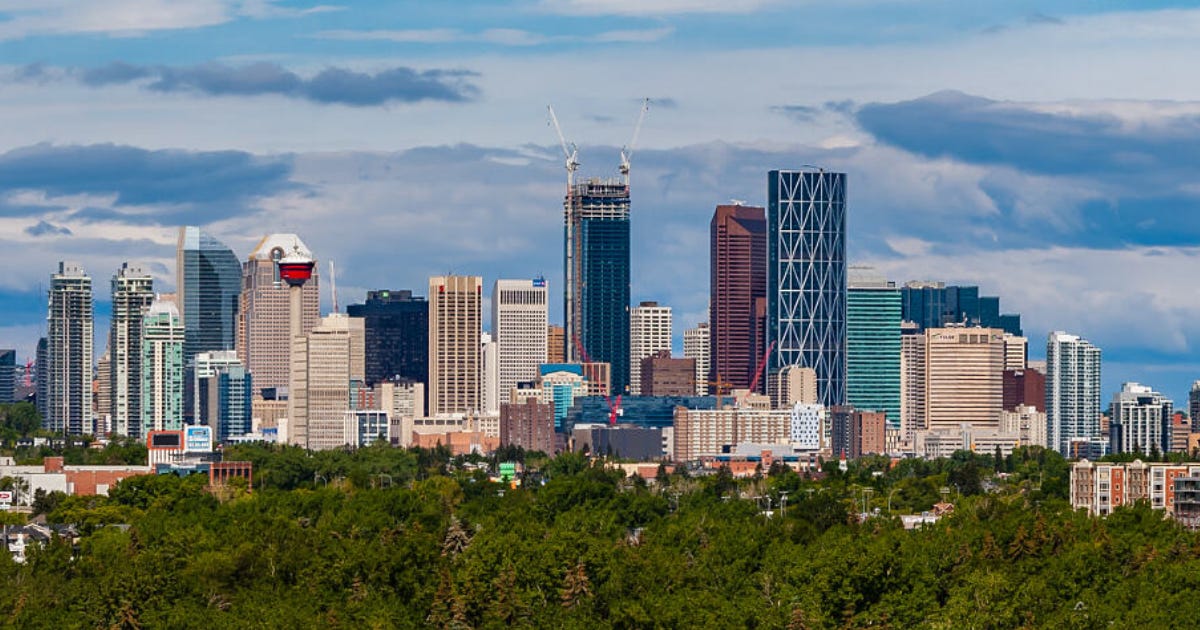Calgary’s property tax nearly doubled over five years: study
Calgary homeowners have been hit with the steepest property tax hikes in Canada, with a new study revealing a near doubling of taxes in just five years.
Calgary homeowners have been hit with the steepest property tax hikes in Canada, with a new study revealing a near doubling of taxes in just five years.
A new study by the Aristotle Foundation found Calgary’s property taxes have nearly doubled since 2016, followed by Saskatoon.
“Calgary stands as an outlier, with the most significant increase in both the effective tax rate (38 per cent) and property tax burden (47 per cent). A decline in income (-13.2 percent) and dwelling value (-7.3 per cent) suggests economic strain between the 2016 and 2021 census periods,” reads the study, titled Taxing our way to unaffordable housing.
“Without Calgary, Saskatoon would top the list of concerning trends. Saskatoon also shows considerable economic strain (both falling incomes and falling home values), but high increases in the property tax rate and tax burden.”
Calgary’s average annual property tax jumped from $2,736 to $3,496, nearly double Montreal’s rate hike.
However, these trends weren’t consistent across Western Canada, with Winnipeg and Vancouver showing only moderate increases.
Meanwhile, Montreal and Toronto showed strong economic performance in income and property value growth. “Both Central Canadian cities even boasted reductions in effective property tax rates, resulting in comparatively lower increases in property tax burden. Still, the overall property tax burden did increase, especially in Toronto (19.3%),” the study said.
All municipalities saw an increase in their property tax burden, ranging from 5% to nearly 50% in Calgary.
Calgary’s rate from 2016 to 2021 spiked “almost twice as quickly as second-place Saskatoon and three-and-a-half times faster than Vancouver.”
The institute argues these trends are significant as property tax is a key revenue source for municipalities, and buying a house is the most expensive decision for most Canadians.
Additionally, municipalities must pay close attention to such trends because reduced incomes and residential property values mean they will either be forced to trim budgets or increase property taxes.
“The latter is, obviously, the easier decision for the municipality. But rising property tax burdens could lead to the city becoming a less desirable place to live,” it said.
However, the study warned that if not addressed correctly, the issue could lead municipalities into “a vicious spiral.”
“This could mean weaker residential property values, weaker population growth, and weaker growth in the number of residential properties,” concluded the study. “The municipality is then again faced with the choice of trimming budgets or raising taxes. And on and on it goes.”





Elect despicable garbage to lead you.
You pay the price.
Pretty simple really.
... OH ...
And that can be seen all over what used to be Canada both Federally and Provincially.
Calgary voters got exactly what they voted for and in most cases were too lazy to not vote for during the last couple elections....The voter apathy and number of morons who voted for Gondek and Nenshi in past elections illustrates exactly how Calgary citizens think - they dont....They are becomming more and more woke and left leaning and they certainly have paid for it in sky rocketing taxes and other moronic civic policies......They will likely continue to elect and or re-elect control freak, left wing lunatics and pay even higher prices in taxation and other insane policies for their stupidity.....Sometimes you just cant fix stupid and the Calgary voters have proven that to be true over and over again, in spades....